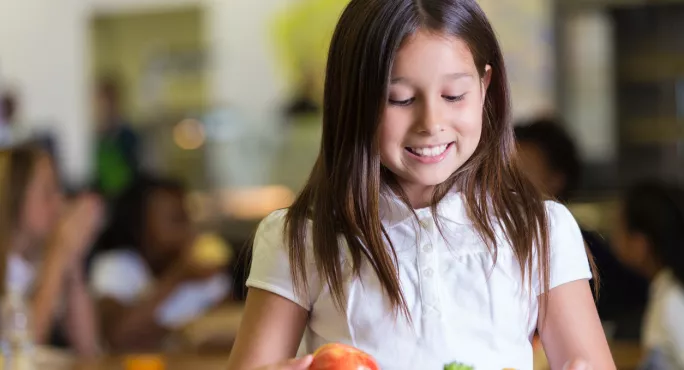- Home
- Are free school meals about wellbeing...or attainment?
Are free school meals about wellbeing...or attainment?

In its handling of education during the pandemic, the government seems to have repeatedly miscalculated what is needed, appropriate and feasible for schools to do.
Throughout, it has made little effort to consult with teachers and headteachers. Instead, it has preferred to plough on regardless, sticking to its own priorities, however narrowly defined. This leads to decisions that make little sense from the perspective of schools or their local communities.
The refusal to fund free school meals during the school holidays is one such decision. In the context of a pandemic, the effects of which have been disproportionately felt in our most disadvantaged communities, a disregard for local knowledge and an overreliance on prescription from the centre is not a good mix.
Free school meals: What are they for?
The government blog post Q and A on FSM limits schools’ responsibilities for providing a nutritious meal to term time, so that pupils can “concentrate, learn and achieve”. The point of ensuring that pupils are well-fed is so that they can meet the attainment outcomes schools are charged with delivering - as if this were all that mattered.
Teachers know differently. They recognise that pupil wellbeing and learning intertwine, and that the second is always conditional on the first. They know how difficult things have been for some of their families and pupils. And they understand this, not as numbers on a spreadsheet but in wholly personal terms, responding to the individuals in their care. It is the human relationships that count.
Our research team asked those on the ground about the problems they have encountered and how they are trying to solve them. Our survey data shows that teachers, heads and system leaders have been trying to solve the most pressing dilemmas their communities face, responding to the many factors that directly affect their pupils: the level of poverty and food insecurity in the school’s community; the mental stress that economic uncertainty and joblessness creates for some families; the lack of material resources that some families can draw on to see them through.
Coronavirus: The narrowness of government thinking
During the crisis, 72 per cent of primary school teachers who answered our survey were checking how families were coping in terms of basic food, health and emotional needs.
Among headteachers, 86 per cent were talking to parents about welfare, 55 per cent were delivering hard-copy learning resources to families without internet access, 42 per cent were checking student welfare on the doorstep and 52 per cent were running food banks or lunch distribution schemes.
This puts on the map the many different ways in which primary schools act as a resource for the communities they are embedded within, and emphasises the importance of the social relationships they build with both families and children. Government seldom acknowledges this role. Indeed, the testing and accountability system it has built treats this aspect of what schools do as profoundly unimportant.
Through the decisions it has made, the government demonstrates the narrowness of its own thinking: that in education what really counts right now is the swift resumption of business as usual. Schools are charged with sticking to existing prescriptions for the pace of curriculum delivery, with no adjustment to the targets they are asked to meet, regardless of their lack of fit with the realities that their communities face.
Something has to change
Something has to change. This is the message we have heard most loudly from primary-school teachers. Too often, they see the current high-stakes testing and accountability regime as working against core educational values, and inhibiting rather than facilitating meeting actual needs on the ground.
More than three-quarters - 77 per cent - of our survey respondents thought that “if testing and inspection goes ahead as normal next year, schools serving the most disadvantaged communities will be unfairly penalised”. And 72 per cent thought that “schools have an important role in building community resilience that should be both recognised and funded.”
Poor decision-making over free school meals underlines this government’s capacity for miscalculation. Our research has highlighted the crucial role that primary schools play as a community resource during times of crisis. It is a community resource that we should draw on during these difficult times, giving these schools a far greater role in deciding what measures to put in place to enable all children to carry on learning in the context of their communities’ needs.
This requires:
- Stronger connections across the education system, which engage all stakeholders in deliberation over how things run.
- Funding for schools working with our most deprived communities, which is more generous in meeting children’s basic needs, for food, mental health and welfare.
- An end to a punitive high-stakes accountability system, which creates perverse incentives to prioritise teaching to the test over and above any other concern.
The government has miscalculated. It is high time to put things right.
Gemma Moss is professor of literacy at UCL Institute of Education and has been leading a research project on primary schools’ responses to Covid-19, funded by the Economic and Social Research Council as part of UK Research and Innovation’s rapid response to Covid-19
Keep reading for just £1 per month
You've reached your limit of free articles this month. Subscribe for £1 per month for three months and get:
- Unlimited access to all Tes magazine content
- Exclusive subscriber-only stories
- Award-winning email newsletters